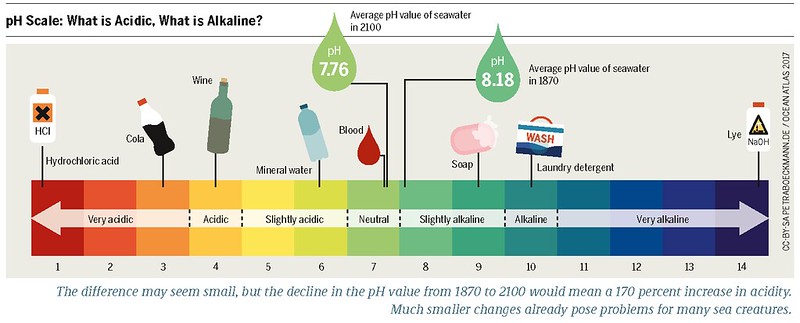The pH of tap water in Chattanooga, USA, typically falls within a range of 6.5 to 8.5, which is considered safe for consumption according to the U.S. Environmental Protection Agency (EPA) standards. However, the optimal pH for drinking water is around 7, which is neutral. Chattanooga’s tap water originates from surface water sources, primarily the Tennessee River and its tributaries, and the water treatment process can lead to the formation of disinfection byproducts (DBPs) that pose potential health risks.
Understanding the pH of Chattanooga’s Tap Water
The pH of water is a measure of its acidity or alkalinity, with a scale ranging from 0 to 14. A pH of 7 is considered neutral, while values below 7 are acidic, and values above 7 are alkaline or basic. The EPA has set a recommended range of 6.5 to 8.5 for the pH of drinking water, as this range is generally considered safe for consumption.
Chattanooga’s tap water typically falls within this safe range, with a pH that can vary depending on factors such as the source water, treatment processes, and the distribution system. However, it’s important to note that the optimal pH for drinking water is around 7, which is neutral.
Potential Health Concerns
While Chattanooga’s tap water may be within the safe pH range, it is essential to be aware of the potential health risks associated with other contaminants that may be present in the water.
Disinfection Byproducts (DBPs)
The water treatment process in Chattanooga involves the use of chlorine or other disinfectants to kill harmful microorganisms. However, this process can lead to the formation of disinfection byproducts (DBPs), such as bromodichloromethane and chloroform. These DBPs have been detected in Chattanooga’s tap water at levels above the Environmental Working Group’s (EWG) health guidelines, posing potential health risks, including an increased risk of cancer and problems during pregnancy.
Other Contaminants
In addition to DBPs, Chattanooga’s tap water may contain other contaminants, such as:
- Bromodichloromethane
- Chloroform
- 1,4-dioxane
- Aluminum
- Barium
- Chromium (hexavalent and total)
- Fluoride
- Haloacetic acids (HAA5 and HAA9)
- Lead
- Manganese
- Nitrate
- Radium
- Silver
- Total trihalomethanes (TTHMs)
These contaminants can have adverse health effects, ranging from minor issues like skin irritation to more severe problems like cancer and developmental issues in children.
Addressing the pH and Contaminants
To address the pH and contaminants in Chattanooga’s tap water, there are several options available:
Home Remedies for pH Adjustment
Home remedies such as adding baking soda (sodium bicarbonate) or a pinch of lime or lemon juice can help raise or lower the pH, respectively. However, it’s crucial to monitor the pH regularly to ensure it remains within the safe range.
Filtration Systems
Various filtration options are available to reduce contaminant levels and improve the overall quality of Chattanooga’s tap water, including:
- Activated carbon filters
- Reverse osmosis systems
- Ion exchange filters
- Distillation systems
These filters can effectively remove a wide range of contaminants, including DBPs, heavy metals, and other impurities.
Regular Monitoring and Testing
It’s essential to regularly monitor and test the quality of Chattanooga’s tap water to ensure it meets the EPA’s standards for safe drinking water. This can be done through regular testing by the local water utility or by using at-home water testing kits.
Conclusion
The pH of tap water in Chattanooga, USA, generally falls within the safe range of 6.5 to 8.5, as set by the EPA. However, it’s crucial to be aware of the potential health risks associated with disinfection byproducts and other contaminants that may be present in the water. By using home remedies for pH adjustment, installing appropriate filtration systems, and regularly monitoring the water quality, residents of Chattanooga can ensure they have access to safe and high-quality drinking water.
References:
- Chattanooga – Tennessee American Water Citico WTP, USA. (n.d.). Retrieved from https://dnnh3qht4.blob.core.windows.net/portals/13/PDF/CCRs/chattanooga_twq.pdf?si=DNNFileManagerPolicy&sig=PWFbOoynQU%2FzKkJIWEsulY%2BqFPJFkh3Wdlkw0n8Nj0c%3D&sr=b
- EWG Tap Water Database | Tennessee American Water. (n.d.). Retrieved from https://www.ewg.org/tapwater/system.php?pws=TN0000107
- Chattanooga’s Water Quality? – Reddit. (2018, May 26). Retrieved from https://www.reddit.com/r/Chattanooga/comments/8m5lcc/chattanoogas_water_quality/
- Chattanooga, Tennessee Water Quality Report – Epic Water Filters. (n.d.). Retrieved from https://www.epicwaterfilters.com/blogs/news/chattanooga-water-quality-report-lead-fluoride
- Problems We Found With Chattanooga’s Drinking Water. (n.d.). Retrieved from https://www.hydroviv.com/blogs/water-smarts/problems-we-found-with-chattanoogas-drinking-water

